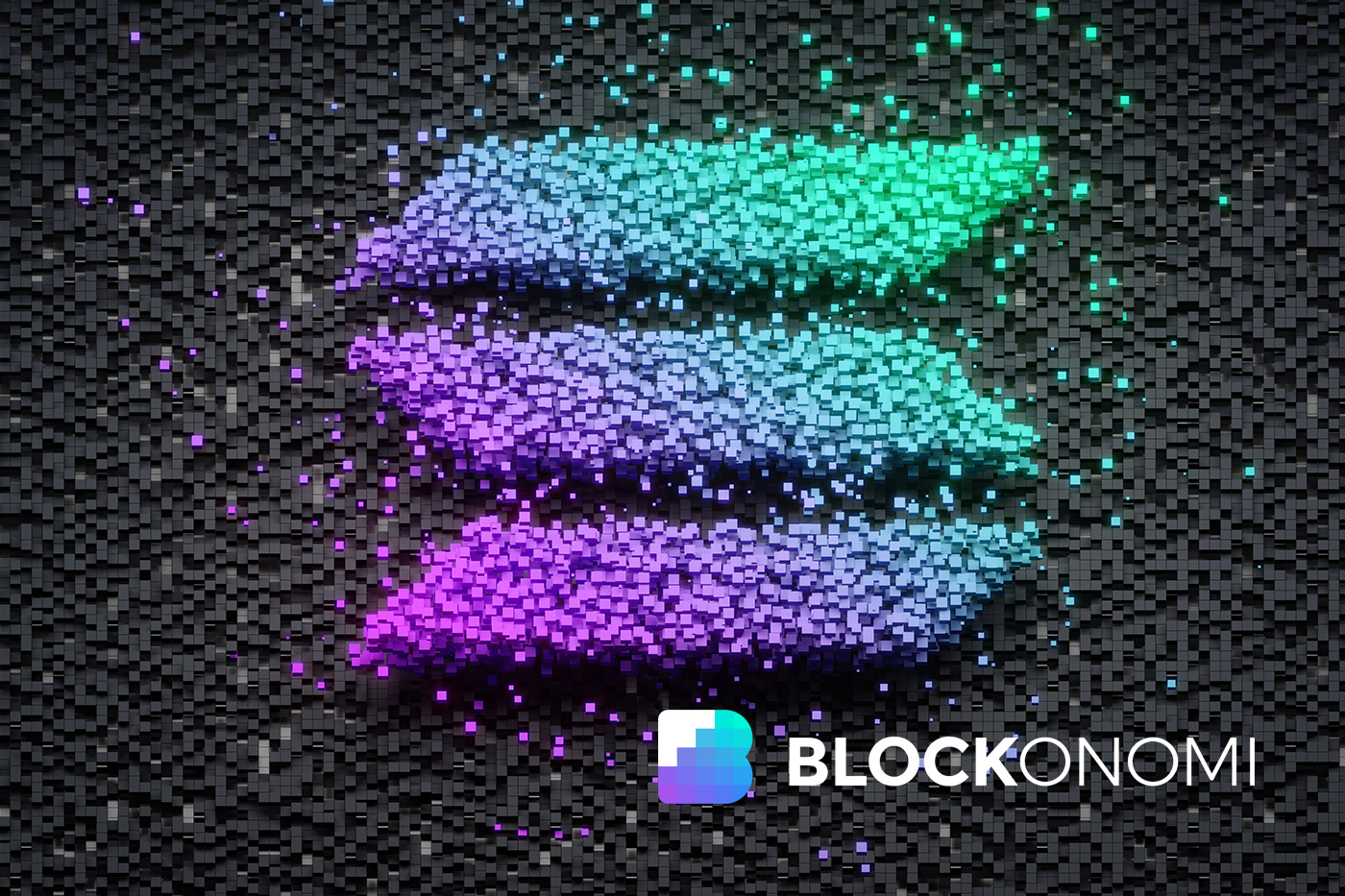Over the past few days, CryptoSlam, an NFT transaction tracker, confirmed that the Solana layer-1 blockchain network has taken the third place in total NFT sales, just behind the Ronin and Ethereum.
Data from CryptoSlam pointed out that Solana’s total sales have reached the milestone and surged past $1.6 billion, making it the third most active blockchain.
The astonishing sales figure also helps them gain traction among nonfungible token (NFT) traders. More noticeably, over the last 30 days, its visibility among traders also ranked second and was only topped by Ethereum (ETH).
Solana Climbs Higher
With $4 billion in total sales in all-time figures, The Ronin sidechain to Ethereum for the Axie Infinity game is still standing firmly in its second place.
However, the recent Ronin bridge hack hurt the network’s weekly and monthly numbers – a chance for the Solana to catch up and take the rank, as it is creating greater distance from its own competitors, despite being behind by Ethereum’s vast margin of $21 billion in total sales.
Furthermore, Solana’s transaction volume is expected to rise after OpenSea, a known and considered leading NFT marketplace, integrates Solana onto its platform this month, thus extending NFT support to the blockchain, starting from April.
The support was also expected by people and rumors concerning the Phantom wallet support.
For those who don’t known, OpenSea is also the most dominant cryptocurrency marketplace platform today.
In January, OpenSea had also regularly generated a valuation of $13.3 billion following a funding round worth $300 million.
Also in January, some developers were able to find evidence that features were being built onto the platform to support Solana, turning the blockchain into the fourth network apart from Ethereum, Polygon and Klatyn, to be supported by OpenSea.
Clear Advantages
Solana, which also serves the blockchain game development strategy with the second-highest growing NFT array after Ethereum, has not yet seen any as dominant a platform as OpenSea.
According to The Block, as of March 2022, the NFT trading volume of OpenSea’s reached $2.4 billion, taking more than 75% of the market share.
However, the number is a drawback compared to February’s $3.08 billion and January’s ATH record of $4.49 billion. As NFT fever is cooling down, users still seem to be sticking to OpenSea, the home of the most sought-after collections.
The above information is not taken seriously by Magic Eden, Solana’s largest marketplace platform.
Moreover, Magic Eden even challenges OpenSea when the two are on the verge of becoming direct rivals.
Following the trend, Opera, a pro-cryptocurrency web browser also stated that its built-in crypto wallet and web 3.0 browser would support many different blockchain networks.
The networks include Polygon, Axie Infinity’s Ronin, Nervos, Celo, IXO, and finally, the Solana.
More Users Are Looking for Efficiency
Solana NFTs has recently received a slew of good news. Coinbase, the world’s largest exchange, announced wallet support for Solana blockchain-based tokens in March, as well as plans to support more NFTs and SOL dApps in the future.
Users of Solana-based wallets such as Phantom and Solflare can now convert their current wallets and utilize them in Coinbase wallets.
Over the last few weeks, demand for SOL has been growing.
In an interview, co-founder and president of Switzerland-based firm 21Shares AG, one of the pioneers in issuing ETPs – cryptocurrency exchange-traded products, has revealed that products offering exposure to Solana and Polkadot were two of its most successful products at launch.
In January, analysts at JPMorgan, who were led by Nikolaos Panigirtzoglou, said that when it came to NFT, Ethereum, the second-largest cryptocurrency by market capitalization, could easily lose to rival blockchain such as Solana.
They found that the latter has been slowly seizing market share from the former, thus, making it a primary beneficiary.
The analysts also suggested that similar to decentralized applications, “congestion and high gas fees” have been, “inducting NFT applications to use other blockchains.”
Solana is clearly on the way up.







































